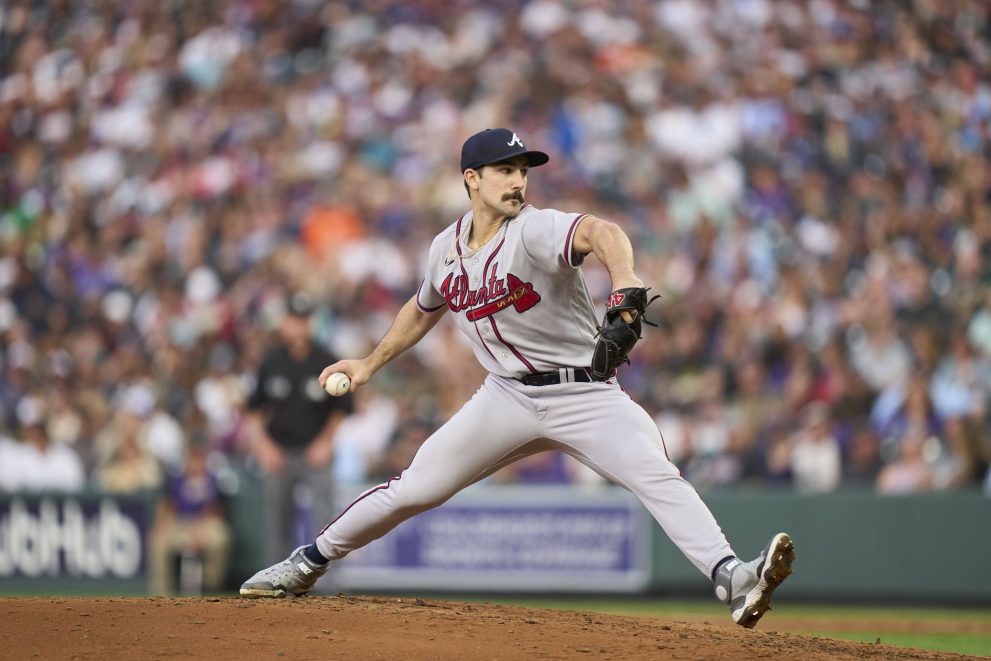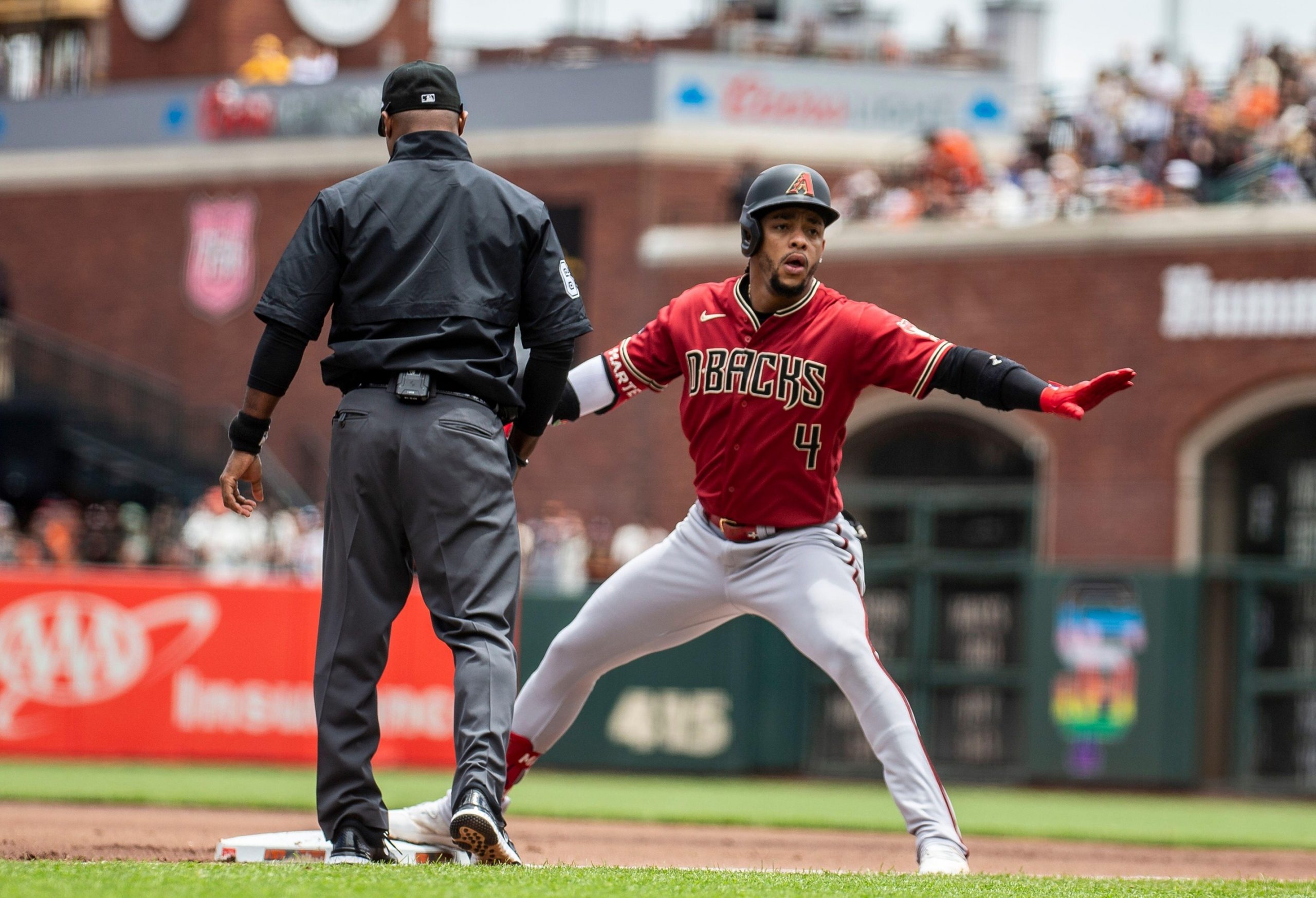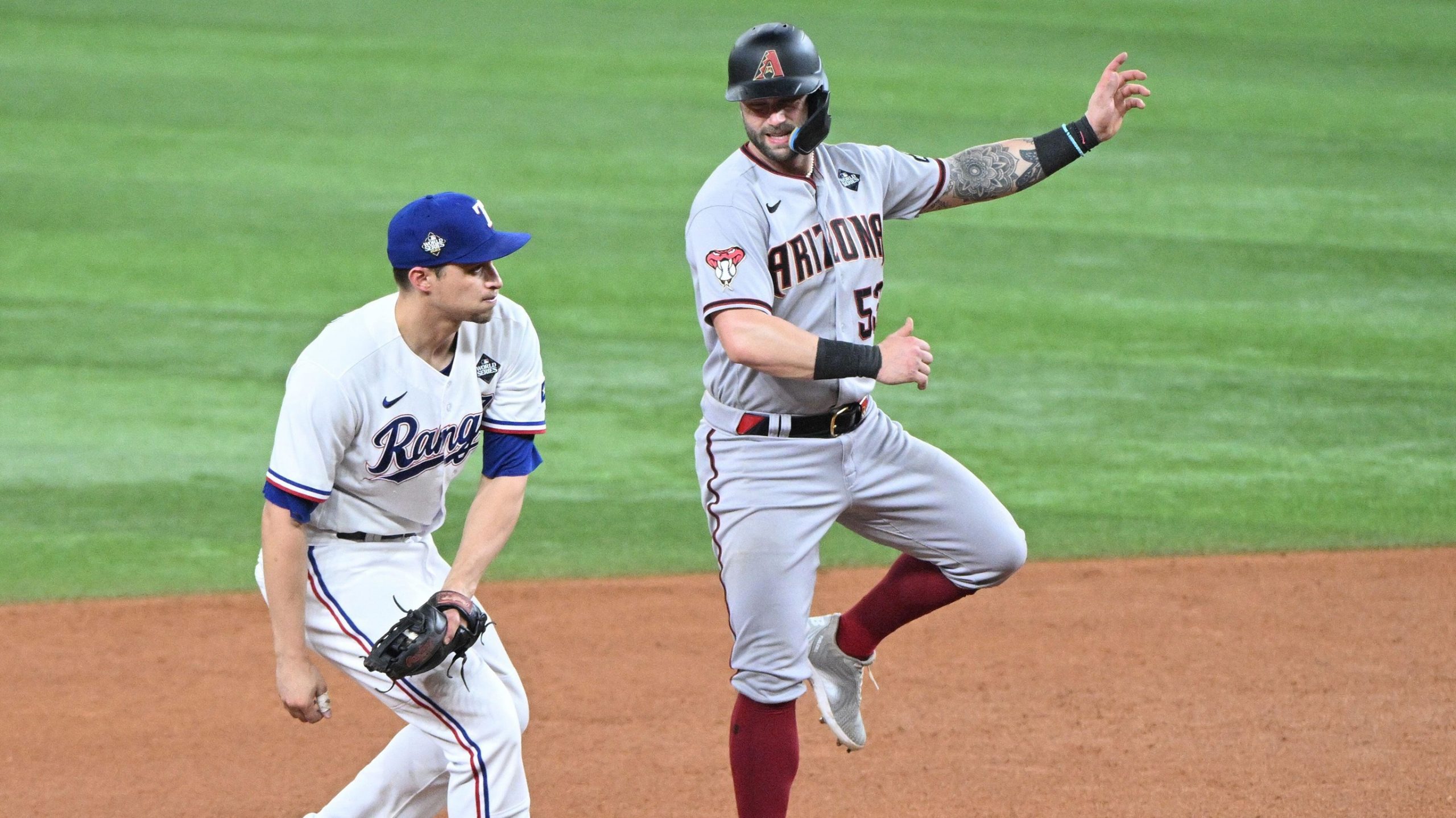With no cell phones in their pockets, no laptops on their desks and no MLB Network carrying around-the-clock awards season preview coverage, baseball fans of all ages grinded through the work or school day with minimal distractions on Nov, 10, 1987, even if their minds were focused on the most important topic of the day:
Who was going to win the National League Cy Young Award race when the balloting was announced later that evening?
The race was as close as everyone expected following a season in which there was no dominant pitcher in the Senior Circuit. Philadelphia Phillies closer Steve Bedrosian, who had an NL-high 40 saves for an 80-82 team, became a sneaky Immaculate Grid pick by winning the award with 57 votes — two more than Rick Sutcliffe, who led the league with 18 wins for the last-place Chicago Cubs.
Rick Reuschel, who finished fourth with a 3.09 ERA and posted a league-best 1.10 WHIP while splitting time between the Pittsburgh Pirates and San Francisco Giants, received 54 votes in third place.
It was the closest three-way Cy Young race in history and remains the closest two-way race since 1969, when Baltimore Orioles teammates Dave McNally and Mike Cuellar split the AL award.
Until, maybe, this year?
With starting pitching growing more devalued by the season, this year’s scrambled three- or seven-man race could be a sign of things to come.
The trio of Blake Snell, Justin Steele and Spencer Strider are jockeying for position as the post-Labor Day home stretch begins, but things are murky enough that a quartet of pitchers — Zac Gallen, Kodai Senga, Logan Webb and Zack Wheeler — lurk with a chance at mounting a Hail Mary run over the final four weeks.
Here’s a look at the field with odds from FanDuel as of Sept. 6, along with a prediction.
Blake Snell, San Diego Padres (-195)
Close Cy Young races are nothing new for Snell, who edged Justin Verlander by 15 votes to win the AL award in 2018. Nor is the concept of Snell building a “yeah, but…” candidacy. Snell leads NL pitchers in WAR per Baseball-Reference (4.6) while also topping the circuit in ERA (2.50, just ahead of Steele) and fewest hits allowed per nine innings (6.1). He also ranks second in strikeouts (201, well behind Strider).
But Snell, whose 180 2/3 innings in 2018 were at the time the fewest over a full season for a Cy-winning starting pitcher, ranks 15th in innings pitched at 155, which works out to 5.5 innings per start. And he also leads the league in walks with 89, which has him ranking 16th in WHIP at 1.25. He’s also pitching for the bizarrely underachieving Padres, which makes it unlikely he’ll perform in meaningful games the rest of the month.
Justin Steele, Chicago Cubs (+250)
The late-blooming Steele, who was drafted by the Cubs in 2014 but didn’t become a full-time rotation member until this year, has the most well-rounded resume of the contenders. He shares the league lead in wins with Strider with 16, ranks second in ERA at 2.55, is third in WAR at 4.0 and is in a virtual tie for sixth in WHIP at 1.14.
Steele has thrown 155 innings over just 26 starts, which works out to nearly six innings per outing. The Cubs are also well-entrenched in the second wild card while battling the Milwaukee Brewers for the NL Central crown, so Steele will be pitching in pivotal games, which could matter to voters looking for a tiebreaker.
Spencer Strider, Atlanta Braves (+550)
With a league-leading 245 strikeouts and a 1.05 WHIP, Strider has a case as the most dominant pitcher in the NL. But Strider, whose 3.66 ERA ranks ninth in the league, is also hit a lot for someone with incredible swing-and-miss stuff. The only Cy Young Award winner with a higher ERA was the late LaMarr Hoyt, who went 24-10 with a 3.66 ERA for the Chicago White Sox in 1983.
Strider has given up at least four runs in a start nine times in 27 outings, and in only one of those did he surrender any unearned runs. A monster month in which he surges past 300 strikeouts and lowers his ERA into the 3.30 range could vault Strider over the finish line. But will the Braves — who are cruising to the NL East title and a first-round bye — be willing to push Strider over his final few starts?
Zac Gallen, Arizona Diamondbacks (+4500)
Gallen, the starting pitcher for the NL in the All-Star Game, spent much of this season as a favorite but has given up 11 runs over 10 2/3 innings while losing his last two starts to the playoff-bound Los Angeles Dodgers and Baltimore Orioles.
He still ranks among the NL’s top five in wins, strikeouts, ERA and innings pitched while residing in a tie for fifth in WAR, though, so there’s a path for him to emerge, especially if he can help nudge Arizona into a wild card spot.
Kodai Senga, New York Mets (+12000)
Did you hear the story about the first-year player who had a better shot at winning the Cy Young than the Rookie of the Year? At +1700 in the rookie of the year race per FanDuel, Senga is officially second behind Corbin Carroll, but the Diamondbacks’ five-tool sensation is a sure thing at -7000.
As someone who only ranks in the top 10 in strikeouts (176) and WAR (3.6), Senga’s almost certainly not going to win the Cy Young, either, but he’s gotten better over the course of the season. In his last seven starts, Senga is 3-2 with a 2.64 ERA and a 51/16 strikeout-to-walk ratio over 44 1/3 innings — an average of more than six innings per outing. He’d be one interesting candidate if the Mets hadn’t spent the previous five months stepping on rakes.
Logan Webb, San Francisco Giants (+12000)
Frankly, it’s a little surprising Webb is this low. We’d dub him the Shane Rawley of the 2023 race, except Rawley — who didn’t receive a vote in the 1987 balloting — canceled out his 17 wins with a 4.39 ERA and a 1.46 WHIP for the sub-.500 Phillies.
But Webb has provided both quality and quantity for the mediocre yet contending Giants by averaging a league-low 1.35 walks per nine innings over a major league-leading 187 innings to go along with the NL’s second-best WAR (4.1), third-best WHIP (1.091) and eighth-best ERA (3.51). This is a lot of ground to make up, but leading the Giants out of the quagmire that is the third wild card race could earn Webb a top-three finish.
Zack Wheeler, Philadelphia Phillies (+12000)
The idea of innings mattering in the Cy Young race perished in 2021, when Wheeler was edged by Corbin Burnes despite posting a league-high 247 strikeouts and 213 1/3 innings pitched — 13 more whiffs and a whopping 46 1/3 innings more than Burnes.
Unfortunately for Wheeler, this year’s slow start (he had a 4.05 ERA prior to the All-Star Break) will cost him a chance at a career achievement type of Cy Young, though he’s been terrific lately (20 strikeouts and no walks in his last 13 innings and a 2.87 ERA in nine second half starts) as the Phillies prepare to defend their NL pennant.
THE PICK: Steele. The black ink on the back of a baseball card or his Baseball Reference page won’t jump out at anyone, but being a consistent ace-caliber starter for a contender will be enough for Steele to win the Cy Young by a slightly larger margin than Bedrosian.







